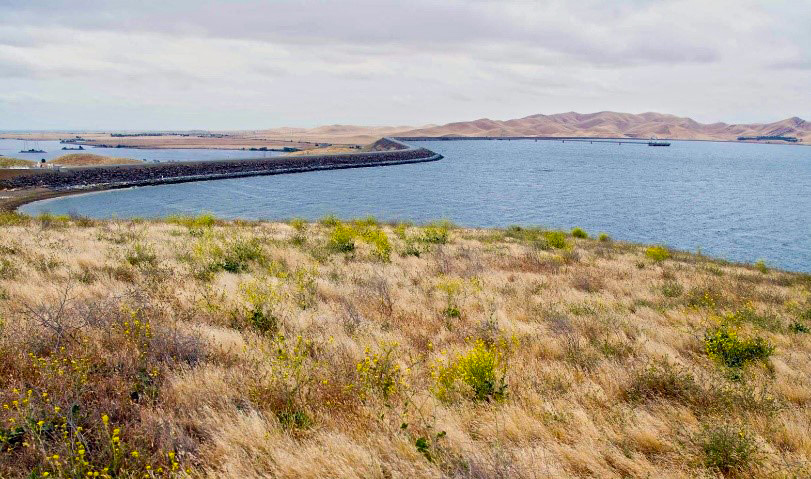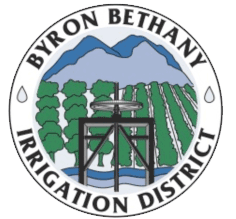The following news release was originally issued by the U.S. Bureau of Reclamation and the San Luis & Delta-Mendota Water Authority (Water Authority). The Byron-Bethany Irrigation District is a member agency of the Water Authority.
 SACRAMENTO, Calif. – Today, the Bureau of Reclamation sent Congress the final feasibility report for the B.F. Sisk Dam Raise and Reservoir Expansion Project. This marks an important step forward in returning water supply reliability to south-of-Delta farmers, local communities, and wildlife refuges.
SACRAMENTO, Calif. – Today, the Bureau of Reclamation sent Congress the final feasibility report for the B.F. Sisk Dam Raise and Reservoir Expansion Project. This marks an important step forward in returning water supply reliability to south-of-Delta farmers, local communities, and wildlife refuges.
“Reclamation has worked hard to make this important project for California’s water supply a reality,” said Commissioner Brenda Burman. “Dam safety improvements at B.F. Sisk are gearing up; now is the time to take advantage of this opportunity and increase water supply in San Luis Reservoir—a win-win for the many that benefit from San Luis Reservoir water.”
Reclamation and the San Luis & Delta-Mendota Water Authority partnered to investigate adding 10-feet to the crest of B.F. Sisk Dam while implementing dam safety modifications. The additional space would be used to store water that could be delivered to south-of-Delta water contractors and wildlife refuges. This water would be used to meet existing contractual obligations and not serve any new demands.
The B.F. Sisk Dam Raise and Reservoir Expansion Feasibility Report was prepared consistent with pertinent study authorizations, and pursuant to the requirements of Reclamation Safety of Dams Act of 1978, as amended by Public Law 114-113, and the Water Infrastructure Improvements for the Nation Act of 2016. Results of the analyses indicate the project to be technically, environmentally, financially and economically feasible.
“While there is still work to be done,” said Regional Director Ernest Conant, “Reclamation and our partner, the San Luis & Delta-Mendota Water Authority, are very pleased to witness this critical milestone for the project.”
“San Luis Reservoir plays an important role as a lynchpin of California’s water system. The reservoir’s water storage capacity is increasingly important to respond to a changing climate. Increasing water storage is a critical component of building water resilience,” said Executive Director of the San Luis & Delta-Mendota Water Authority Federico Barajas. “We appreciate the collaborative partnership with Reclamation and are pleased to see the Feasibility Report be transmitted to Congress and look forward to advancing this important project.”
Background
B.F. Sisk Dam is a 382-foot high earthfill embankment located on the west side of the Central Valley, about 12 miles west of Los Banos. The dam is over 3 miles long and impounds San Luis Reservoir, which has a current total capacity of around 2 million acre-feet.
A final supplemental environmental impact statement was prepared for the project under the National Environmental Policy Act and released on Dec. 18, 2020; the report is available here: https://www.usbr.gov/mp/nepa/nepa_project_details.php?Project_ID=44425.
